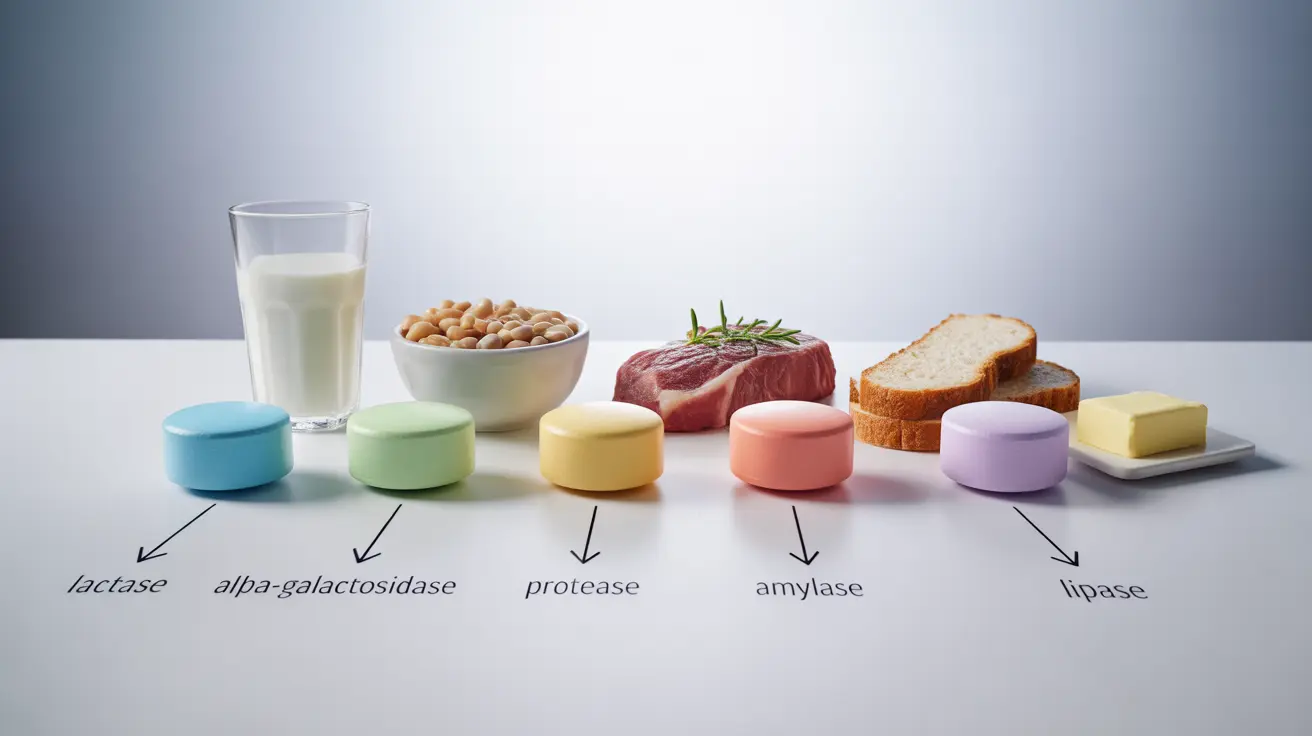Living with Irritable Bowel Syndrome (IBS) can be challenging, but understanding how digestive enzymes work and choosing the right supplements may help manage your symptoms. This comprehensive guide explores how digestive enzymes can potentially improve IBS-related digestive issues and which options might work best for your specific needs.
Whether you're dealing with gas, bloating, or irregular bowel movements, the right digestive enzyme supplement could make a significant difference in your daily comfort. Let's explore the most effective options and how to use them safely.
Understanding Digestive Enzymes and Their Role in IBS
Digestive enzymes are specialized proteins that help break down food into nutrients your body can absorb. For people with IBS, certain enzyme deficiencies may contribute to symptoms like bloating, gas, and digestive discomfort. Different enzymes target specific components of food, making some more beneficial than others for particular IBS symptoms.
Key Digestive Enzymes for IBS Relief
Several specific enzymes have shown promise in managing IBS symptoms:
- Lactase: Helps digest dairy products
- Alpha-galactosidase: Breaks down complex sugars in beans and vegetables
- Protease: Aids in protein digestion
- Amylase: Helps process carbohydrates
- Lipase: Assists with fat breakdown
Targeted Enzyme Supplements for Specific Symptoms
Different IBS symptoms may respond better to specific enzyme combinations. For example, if dairy triggers your symptoms, a lactase supplement might be particularly helpful. Similarly, alpha-galactosidase can be beneficial if you experience bloating after eating certain vegetables or legumes.
Choosing Between Broad-Spectrum and Specific Enzymes
While broad-spectrum enzyme supplements contain multiple enzymes to aid general digestion, targeted supplements focusing on specific problem areas might be more effective for some individuals. The choice often depends on your particular symptoms and food sensitivities.
How to Use Digestive Enzyme Supplements Effectively
Timing and dosage are crucial factors in maximizing the benefits of digestive enzyme supplements:
- Take supplements just before meals
- Start with a lower dose and gradually increase if needed
- Maintain consistent timing with meals
- Store supplements according to package instructions
- Monitor your response to different enzymes
Safety Considerations and Best Practices
While digestive enzymes are generally considered safe, it's important to approach supplementation thoughtfully:
- Consult with healthcare providers before starting supplements
- Choose quality products from reputable manufacturers
- Monitor for any adverse reactions
- Consider potential interactions with medications
- Follow recommended dosage guidelines
Frequently Asked Questions
What are the best digestive enzymes for relieving IBS symptoms like gas and diarrhea? The most effective enzymes often depend on your specific symptoms. Lactase helps with dairy intolerance, while alpha-galactosidase can reduce gas from complex carbohydrates. A broad-spectrum enzyme supplement containing multiple enzymes might be beneficial for general symptom relief.
How do targeted digestive enzymes like lactase and alpha-galactosidase help with food intolerances in IBS? These enzymes specifically break down compounds that commonly trigger IBS symptoms. Lactase breaks down lactose in dairy products, while alpha-galactosidase helps digest complex sugars found in beans and vegetables that can cause gas and bloating.
Can broad-spectrum digestive enzyme supplements improve IBS symptoms or are specific enzymes more effective? Both approaches can be beneficial. Broad-spectrum supplements may help with overall digestion, while targeted enzymes might be more effective for specific food intolerances. The best choice depends on your individual symptom patterns and trigger foods.
When and how should I take digestive enzyme supplements to manage digestive discomfort? Take enzyme supplements just before meals for optimal effectiveness. Start with the recommended dosage on the product label, and adjust based on your response and healthcare provider's guidance.
Are digestive enzyme supplements safe and recommended as a regular treatment for IBS? Digestive enzymes are generally safe when used as directed, but they should be part of a comprehensive IBS management plan. Always consult with healthcare providers before starting any new supplement regimen, especially if you have underlying health conditions or take medications.
Remember, while digestive enzymes can be helpful tools in managing IBS symptoms, they work best as part of a comprehensive approach that includes dietary modifications, stress management, and proper medical supervision.




